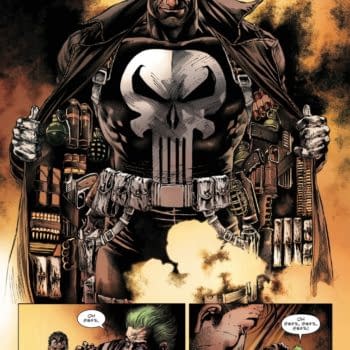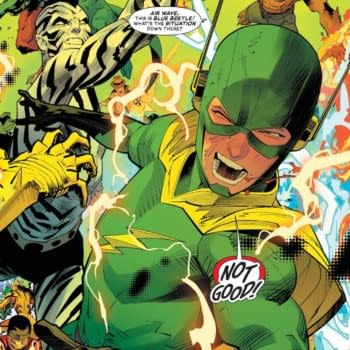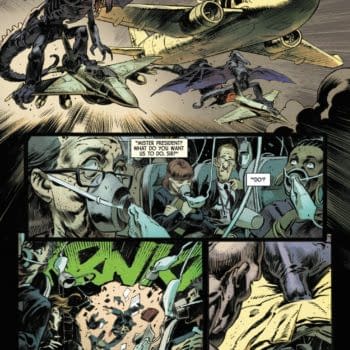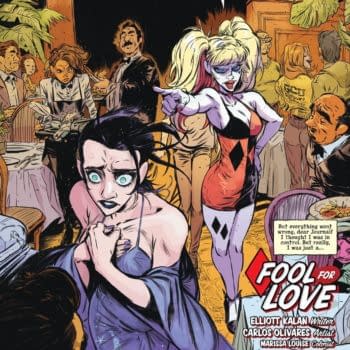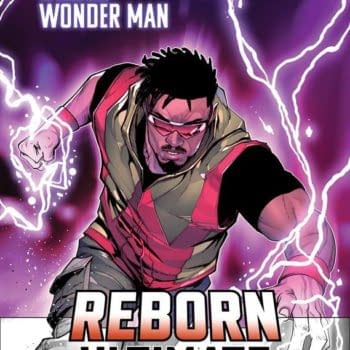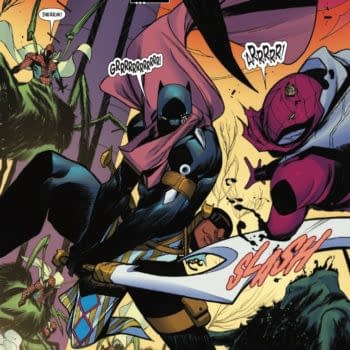Posted in: Comics | Tagged: Comics, Deja Thoris, Dynamite Entertainment, entertainment, mark waid, Robert Place Napton, Warlords of Mars
Mark Waid Chats With Deja Thoris Writer Robert Place Napton
We close out the Mark Waid week of interviews with his discussion of Warlords of Mars: Deja Thoris with series writer Robert Place Napton.
Mark Waid: Holy Jiminey, that's a lot of naked flesh. Not on you, on Dejah Thoris. But in her adventures, she's pretty much the furthest thing possible from a bikini bimbo, yes?
Robert Place Napton: Naked flesh? Hadn't noticed. But yes, Gidget she is not. The conceit of this series is we meet Dejah 400 years before she meets John Carter. Since the average Barsoomain (Martian) lives to be about 1000 that means we're exploring Dejah the "college years" in our series. I found it compelling to reveal what Dejah was like in her formative years. I see her as more reckless, more impulsive, curious, and a bit of an adventure junky.
MW: But the lack of clothing–that's very consistent with Burroughs' literature, isn't it?
RPN: Lack of clothing? Hadn't noticed. Generally speaking, Edgar Rice Burroughs saw the inhabitants of Mars as tribal folk and thus, not ones to be bashful. That people are bumped by Dejah's appearance misses the entire point of the series.
MW: Talk to me a little about the cast. Who's there, how do they relate to one another, and what about them (if anything) are you drawing from your own life?
RPN: Dejah and her Father and Grandfather, which are Burroughs creations are at the center stage. Dejah loves her father and Grandfather and is very much in line with what they are trying to accomplish for the Helium Empire, the foremast Red nation on Barsoom. Of late, she's come across the fact, previously unknown, that she had an older brother. He's the big bad. He got abducted and raised as slave and he doesn't appreciate the fact that Dejah lived a life meant for him. He's decided it's time to get his pound of flesh. There's a skin reference again – maybe you ARE on to something here, Mark. My life is pretty routine compared to Dejah's so it's hard to say what connections there are.
MW: In terms of menaces and threats, how much are you drawing from Burroughs' mythology and how much from your own imagination?
RPN: Burroughs created such a rich world on Barsoom. So many cultures, creatures, cities, terminology. It's arguably a precursor to something like Dune. So I draw on the elements of the first three novels that really beg reexamination in comic form. And I've invented some things as well – I had Dejah end up on Saturn – a world never touched on in Burroughs' novels – but I tried to populate it in a Burroughs way. I invented the brother that I previously mentioned, because everyone needs a Moriarty in their life – a twisted mirror version to torment and battle you.
MW: What is it about this story that makes you passionate to tell it?
RPN: Burroughs really invented a new genre with these stories. Some say he was influenced by other works, but Burroughs clearly popularized the idea of an Earthman trapped on an alien world battling aliens with a sword for the sake of a beautiful princess. It's what led to Flash Gordon, Star Wars, Avatar… the list goes on and on, so that makes it really fun for me.
MW: Fill in the blanks for me: If you're a fan of ____________ and _____________, you will really like Warlord of Mars: Dejah Thoris.
RPN: If you're a fan of Pulpy adventure and naked flesh (apparently) you will really like Warlord of Mars: Dejah Thoris.
















